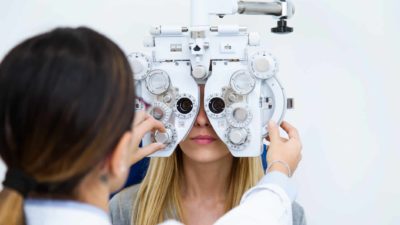ResMed Inc (ASX: RMD) shares have fallen 30% over the past six months.
They hit a four-year low in September, so this is certainly a case of a blue-chip ASX share on sale.
On Friday, ResMed shares are trading at $23.06, down 0.95%, while the ASX 200 is up 0.35%.
What's dragging ResMed shares down?
One of the factors behind ResMed's share price decline has been concern over the impact of obesity medications like Ozempic in Australia and Wegovy and Mounjaro in the United States.
The concern is that these highly effective GLP-1 medications may lead to reduced demand for the sleep treatment company's medical devices.
Obesity can cause obstructive sleep apnoea (OSA), and ResMed's continuous positive airway pressure (CPAP) machines treat it.
Research shows 70% of people with OSA also suffer from obesity.
ResMed CEO Mick Farrell reckons there are three factors that will "mitigate GLPs in the space". They are cost, adherence, and side effects.
Another ongoing factor — at least for now — is supply.
The manufacturers haven't been able to keep up with the explosion in demand for GLP-1s.
Another shortage of Ozempic is now underway in Australia.
The Therapeutic Goods Administration (TGA) says supply will be limited for the rest of 2023 and throughout 2024, and has advised doctors not to start any new patients on Ozempic.
There has also been supply problems in the US.
What's happening later this month?
ResMed announced today that it will release its next quarterly results on Thursday, 26 October after the market close.
The company will host a webcast to discuss the results on 27 October at 7.30am AEDT. Investors are likely hoping for more insights on the impact of GLP-1s from management then.
ResMed also announced that it will conduct its annual general meeting on Friday, 17 November AEDT.
Should you buy ResMed shares?
Several brokers say the recent weakness in the ResMed share price presents an opportunity to buy.
Morgans comments that it does not view GLP-1s "as category killers".
It says they will have "little impact on the large, underserved sleep disorder breathing market".









